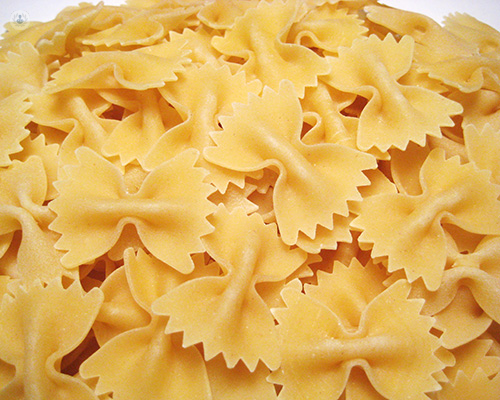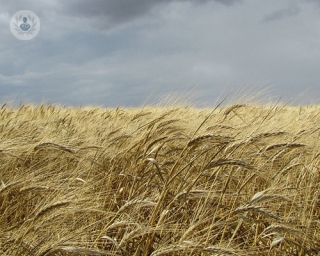Coeliac disease
Dr Carlo Nunes - Gastroenterology
Created on: 11-13-2012
Updated on: 05-26-2023
Edited by: Conor Dunworth
What is coeliac disease?
Coeliac disease is a pathology characterised by permanent intolerance to gluten. This substance is present in wheat, barley, rye and oats. Gluten damages the lining of the small intestine, causing it not to absorb the necessary components of the food, i.e nutrients. It occurs in genetically predisposed individuals who suffer from atrophy of the villi of the small intestine.
The disease can manifest itself at any time of life, from infancy to adulthood. People with family members who suffer from coeliac disease have a greater predisposition to suffer from it. It occurs more often in women than in men.
What are the symptoms?
Depending on the degree of intolerance, there may be only a few symptoms which present, or a great many. It is also possible that no symptoms present.
The most common manifestations of coeliac disease are:
- abdominal pain
- gas
- indigestion
- constipation
- decreased or increased appetite
- diarrhoea
- nausea or vomiting
- unexplained weight loss.
Other problems may also occur such as being more prone to bruising, depression, anxiety, fatigue, delayed growth in children, hair loss, dermatitis, mouth ulcers, nosebleeds, and muscle cramps, and absence of menstrual periods, among others.
Causes of coeliac disease
The exact cause of coeliac disease is unknown. When people with coeliac disease consume foods with gluten, whether or not they are aware of their disease, their immune system causes damage to the villi in the small intestine. This in turn makes the small intestine unable to adequately absorb iron, vitamins and nutrients.
Can it be prevented?
As the cause of coeliac disease is not known, there is no way to prevent its appearance. However, it is important to take into account certain risk factors such as having a family member with this disorder, for early diagnosis and treatment.
What is the treatment?
Coeliac disease cannot be cured. The treatment is to follow a gluten-free diet for life. This helps the symptoms disappear and to heal the villi in the lining of the intestines.
If adequate treatment is not given, certain complications can occur such as autoimmune disorders, bone disease, intestinal cancer, anaemia, or liver disease.


















